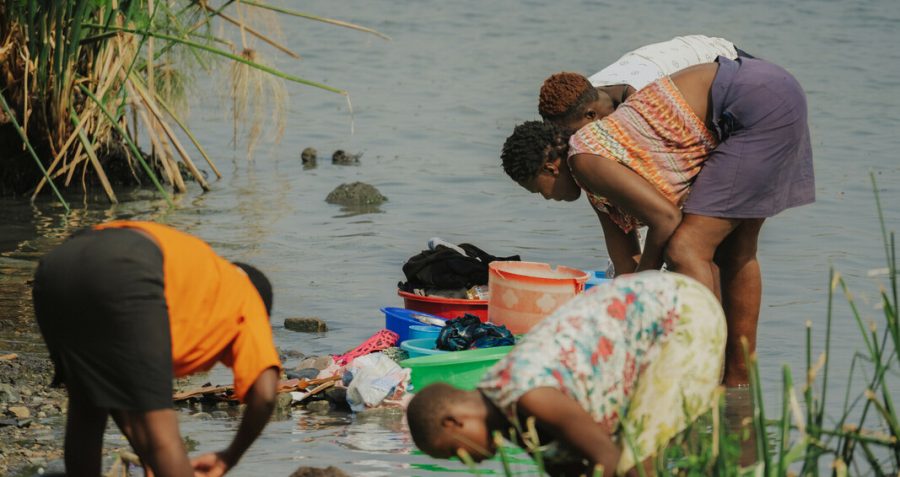 Women washing in a water body, which predisposes them to FGS. Photo/LVCT.
Women washing in a water body, which predisposes them to FGS. Photo/LVCT.
Experts have called for the integration of female genital
schistosomiasis (FGS) services into sexual and reproductive health rights
intervention programs.
According to the World Health Organization, people become infected when larval forms of the parasite – released by freshwater snails – penetrate the skin during contact with infested water. In the body, the larvae develop into worms that live in the blood vessels, where the females release eggs. Some of the eggs are passed out of the body in faeces or urine. Some of these eggs are trapped in the female reproductive tract, where they cause fibrosis and scarring of genital tissues.
Symptoms include vaginal bleeding, genital ulcers, and pain.
The condition disproportionately affects women and girls who lack access to safe, clean water, sanitation and quality healthcare.
If left untreated, FGS can lead to infertility and increase the risk of HIV, Human Papilloma Virus (HPV) and cervical cancer.
In a research project to examine how FGS services can be integrated into SRHR interventions, budgets and policies, it was determined that integrating FGS was the best move to control and prevent FGS.
The study was conducted in high-prevalence areas like Homa Bay, Kwale and Kilifi counties, and was conducted by LVCT in collaboration with Frontline Aids and Bridges to Development and funded by Children’s Investment Fund Foundation (CIFF).
The researchers said that integrating FGS into sexual and
reproductive health and rights interventions is not just possible, but a vital move
to reach women and girls with this unknown condition, which is often
misdiagnosed and misunderstood.
According to the (FGS Integration report), FGS is relatively unknown and has similar symptoms to Sexually Transmitted Infections (STIs).
It says many women are
often misdiagnosed with an STI instead of FGS. The misdiagnosis results in
incorrect treatment, stigma, discrimination and gender-based violence (GBV).
The project was conducted to create awareness about FGS in
communities and healthcare facilities and to ensure that healthcare workers
were able to diagnose and treat FGS as well as support women experiencing
stigma, discrimination and GBV.
Healthcare workers from Homa Bay said that they felt that
this approach was feasible and didn’t significantly add to their workload.
“In the process of screening for cancer, you are also screening
for FGS, so there is no workload at all. It is not adding anything,
because as you write the report of cancer screening, you also write
the FGS report,” the report said.
The researcher further noted that the integration of health
areas is particularly important now, given that global health funding and
strategies are increasingly moving away from siloed approaches that focus on
one health issue.
However, the report warns that integrating FGS into SRHR
services is only possible if clinical staff receive training and supportive
supervision, diagnostic supplies are available, and facilities are adequately
stocked with praziquantel – the medication used to treat FGS.











